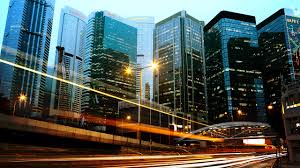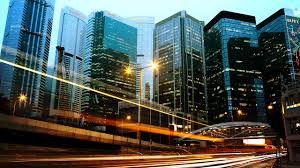Prime Minister Narendra Modi, as a part of his vision, announced the development of 100 smart cities in the country by 2020. So what exactly is a smart city? The Smart Cities Council defines a smart city as one which “uses information and communications technology (ICT) to enhance its livability, workability and sustainability” by “collecting, communicating and crunching” data — within and across departments and third parties. Since then, its been a race among the cities in order to prove efficient enough to be developed as a smart city. The Government has promised that every state would get atleast one smart city, with the project expected to be in full swing by October of this year, with a target of 20 ‘smart’ cities this year, and 40 in the subsequent years- Gujarat International Finance Tec-city (GIFT) being the first ones. Also, there will be a cap of 2-3 smart cities in a state.
Urban development minister, Venkaiah Naidu said that in a couple of months, around 500 cities will go in redevelopment. In order to develop smart cities, it is necessary to empower municipal bodies and by making the urban areas livable over a sustained period of time. Efforts are being made to rightsize the flow of revenue in each state and to convince the representatives of the states and municipal bodies across the country to allocate more land towards smart cities. These cities would have portable drinking water, assured power supply, efficient public transport, and would be pollution and congestion-free.
But the problem that arises is that one year since Modi’s announcement, India is still struggling with the concept of smart cities. Minimal amount of the amount allocated in the Union Budget for development of smart cities has been utilized. The exact meaning of a smart city is still unclear, not only in India- but across the world. As more people migrate to urban centres for employment, cities need to get smarter about how they manage the utilities, transport and congestion, healthcare as well as education. So the governement has put together all these to come up with one of its own.
A city challenge has been announced, in which cities will compete on various parameters. This will be a two stage process- the first being that the cities will be narrowed down on the basis of attention to Swachh Bharat Abhiyan, payments of salaries to municipal staff on time, etc; the second being the self financing abilities of the cities, service levels and track records in implementing reforms.
But in the end, the people will hold the key to the success of these smart cities. This has to be an inclusive movement, involving the entire population. It is not just in the hands of the government. At the end of the day, a city is “smart” only when those living in it are at the heart of the design.





13 Comments. Leave new
Creating smart cities is not a easy job. The problems are many with finite solutions. But, with a smart man comes smart ideas, therefore, with the assumption that people who have control are smart, the country is waiting for such a development.
Well scripted
Smart city is a good idea. But everything comes at a cost. Hope these cities do not affect the B-town cities and villages.
If the plan of building smart cities is achieved efficiently, it will be a major boost to India’s infrastructure.
Well explained!
Well written
Excellent!
Well explained! 🙂
nice work…
well defined!!
well written.. hope this vision will ensure development of the country
What a ‘smart article’ 🙂
I like your vision and totally agree to your views. Good job. 🙂